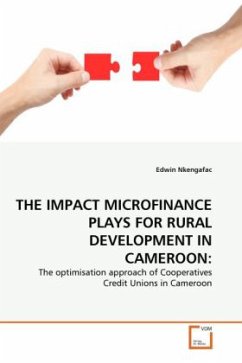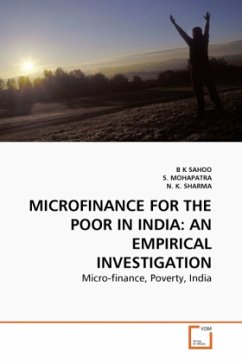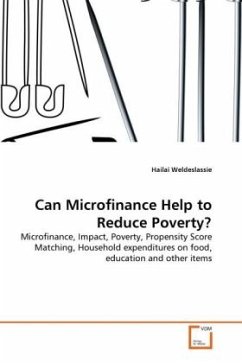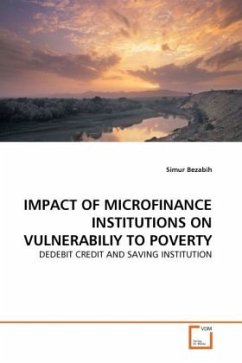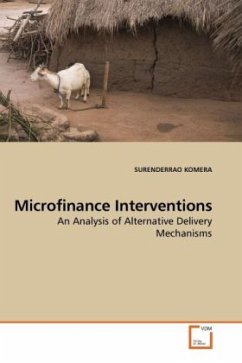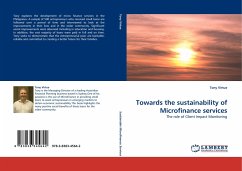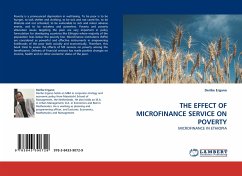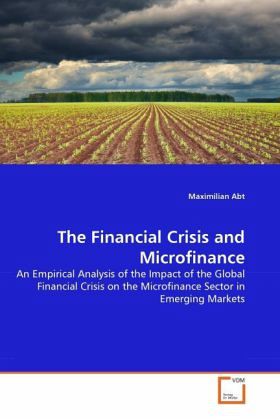
The Financial Crisis and Microfinance
An Empirical Analysis of the Impact of the Global Financial Crisis on the Microfinance Sector in Emerging Markets
Versandkostenfrei!
Versandfertig in 6-10 Tagen
45,99 €
inkl. MwSt.

PAYBACK Punkte
23 °P sammeln!
Microfinance institution ( MFI ) performance, asset quality and growth deteriorated markedly in 2008 and 2009. This thesis investigates whether, and to what extent the financial crisis explains this downturn. In this respect, it asks which MFI and market level features turn institutions more resilient against macroeconomic turmoil linked to the financial crisis. This can guide commercial and political decisions about how to create sustainable microfinance. The author uses panel data from 2006 to 2009 on 505 MFIs and conducts several sets of dummy variable regressions. Thereby, it is controlled...
Microfinance institution ( MFI ) performance, asset quality and growth deteriorated markedly in 2008 and 2009. This thesis investigates whether, and to what extent the financial crisis explains this downturn. In this respect, it asks which MFI and market level features turn institutions more resilient against macroeconomic turmoil linked to the financial crisis. This can guide commercial and political decisions about how to create sustainable microfinance. The author uses panel data from 2006 to 2009 on 505 MFIs and conducts several sets of dummy variable regressions. Thereby, it is controlled for alterations in competition between MFIs, relevant regulatory and political changes as well as the food and fuel crisis. Evidence emerges for a small, but identifiable yet slightly disparate impact of the shocks associated with the financial crisis on MFIs. The effect differs substantially depending on MFI and market characteristics. For instance, the status as a nonbank MFI and being located in a market characterised by high political intervention render MFIs less exposed to crisis related shocks.



